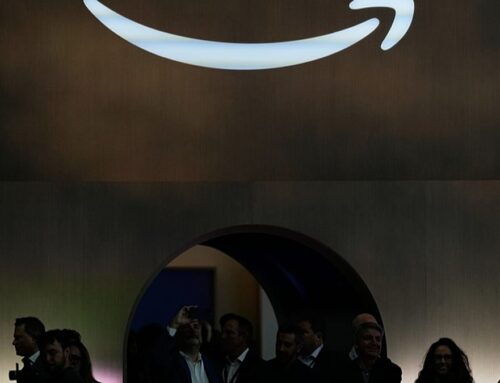What do Charlotte’s local candidates think about climate change and environmental health?
November 3, 2025
A recent Yale opinion poll showed that not only are Mecklenburg residents worried about climate change, but the majority also believe that local elected officials should do more to address global warming. But do Charlotte’s candidates believe they can make a difference when it comes to the environment and climate change?
WFAE sent a survey to Charlotte’s city council and mayoral candidates. We received nine responses in time for our report.
Candidates at a glance
All candidates supported policies that promote a healthy tree canopy. Most supported policies to improve stormwater management, air quality and extreme heat relief.
Not all candidates said they were aware that fossil fuels are the primary cause of current global warming trends, but most agreed that city residents would experience the effects of climate change during their lifetime. They also generally agreed that local officials could affect our changing climate.

Zachary Turner
/
WFAE
When it comes to extreme heat, most folks went straight to trees, with a few notable exceptions.
Kimberly Owens suggested using “creative building materials” that reflect rather than absorb heat. LaWana Slack-Mayfield responded with solutions that reduced energy consumption but wouldn’t provide direct heat relief.
Candidate views on the transit referendum were split. The most common problem for candidates stemmed from the way the program would be funded. Terrie Donovan, the Republican mayoral candidate, said the tax was “regressive,” meaning low-income families would pay a higher percentage of their income.
“[The Transit Plan] burdens the low-income residents who can least accommodate another stress on their pocketbooks,” Donovan wrote.
Other candidates recognized the need for more transportation funds to improve bus frequency, shade bus stops from the heat and increase mobility throughout the city.

Zachary Turner
/
WFAE
Terrie Donovan, Republican mayoral candidate
Important issues: Tree canopy restoration, Stormwater management, Extreme heat, Air quality, Food waste, Energy consumption, Land preservation and restoration
Donovan agreed that Charlotteans are already experiencing the effects of climate change. She would prioritize tree plantings in “heat-vulnerable and low-canopy neighborhoods” to reduce the harms of rising temperatures. She also recommended offering developers a carrot — rebates for incorporating sustainable practices such as green roofs.
Donovan does not support the transit referendum, calling for more funding for public safety and community engagement within the plan.
When it came to environmental health, she focused on individual actions her constituents could take to reduce energy and waste. Those solutions included turning off the lights, installing “energy-efficient bulbs” and avoiding single-use plastics.

Zachary Turner
/
WFAE
Rob Yates, Libertarian mayoral candidate
Important issues: Tree canopy restoration, Stormwater management, Waste management, Food waste, Energy consumption, Lowering energy costs
Yates said he would like to see the city partner with businesses and nonprofits to promote climate environmental solutions that might include:
- Installing solar panels on city bus stops
- “Corporate-sponsored land reclamations” that focused on carbon sequestration
He said he would also reduce regulations and property taxes to increase homeownership.
“The pride of ownership drives far more responsible development, as people take better care of that which is theirs, than any government policy could ever hope to achieve,” Yates wrote.
Yates is in favor of nuclear energy and supports solar and wind. He does not agree with the city’s recent findings that extreme heat is the biggest climate-related threat to Charlotte residents.
He does not support the transit plan. His response focused on public safety measures and efforts to enforce tickets.
“I would remove occupational licensing and zoning restrictions which require people to travel longer distances to work.”

Zachary Turner
/
WFAE
Joi Mayo, Democrat, City Council, District 3
Important issues: Tree canopy restoration, Stormwater management, Extreme heat, Air quality, Energy consumption, Land preservation and restoration.
Mayo is the transportation chair with the Charlotte-Mecklenburg Climate Leaders and works with nonprofit Trees Charlotte.
Current climate and energy goals focus “too narrowly” on energy, rather than the ways residents experience climate change or environmental health problems. Measurable goals might include:
- Tree canopy goals
- Air quality metrics
- Energy efficiency retrofits and other programs to lower electricity bills
She also emphasized the need for the city to work with “schools, nonprofits, and faith-based organizations already leading sustainability work.”
“For me, climate justice and community health go hand in hand,” Mayo wrote.
Her strategy for heat relief included canopy restoration, reducing surfaces that absorb heat and building more shaded transit stops. She would focus canopy restoration efforts in neighborhoods such as Steele Creek and Nations Ford.
Other heat solutions might involve installing cool roofs and green roofs on public and affordable housing.
Mayo emphasized strong community partnerships to address environmental and climate problems. She suggested liaising with schools and HOAs to create more cooling centers and shaded playgrounds.
“If you’re having to choose between two necessities like, ‘Oh, I need to service my car,’ or ‘Oh, I need to be able to feed my children,’ how can the city kind of ease some of that burden?” Mayo said.
Mayo said she was “neutral” about the Transit Plan.
“While improving public transit is essential, we must ensure it doesn’t accelerate displacement or leave long-time residents behind, especially along the Silver Line and other high-growth corridors,” Mayo wrote.
She clarified during a follow-up interview that many of the changes she would like to see could be made after the plan was adopted. Those changes might include implementing Community Benefits Agreements that “consist of clear commitments to local hiring, small-business inclusion, and workforce development pipelines, so District 3 residents benefit from construction and long-term job opportunities connected to new transit hubs.”
“My hope is that people in black and brown neighborhoods can work, live and play in their communities — or within 10 minutes,” Mayo said. “Just like their more affluent peers in South End.”

Zachary Turner
/
WFAE
Robin Emmons, Independent, City Council, District 3
Important issues: Tree canopy restoration, Stormwater management, Extreme heat, Air quality, Waste management, Food waste, Energy consumption, Land preservation and restoration
Emmons founded Sow Much Good, which focuses on food justice and expanding access to affordable produce.
“I’m running as an Independent because protecting our future shouldn’t depend on party politics — it should depend on courage, compassion, and common sense,” Emmons wrote.
Emmons said that the city needed accountability and better data collection when it came to its climate and energy goals. Her solutions for improving environmental health included improving Charlotte’s tree canopy, planting pollinator gardens and expanding mobility and connectivity throughout the city. She also said the city could help small businesses with energy retrofits to lower electricity bills and reduce emissions.
“Environmental health isn’t separate from daily life — it’s about well-being, safety, and opportunity,” Emmons wrote.
Emmons does not support the transit plan, saying residents would shoulder too much of the cost without business paying their fair share.
Extreme heat disproportionately impacts neighborhoods with high utility bills and sparse tree canopy coverage, according to Emmons. Her solutions included:
- Shading bus stops
- Restoring the tree canopy
- Outfitting libraries and rec centers to serve as cooling centers and resilience hubs
“We can also train residents for green-jobs programs — tree care, solar, sustainable building — so climate action becomes economic opportunity too,” Emmons wrote.
Kimberly Owens, Democrat, City Council, District 6
Important issues: Tree canopy restoration, Stormwater management, Extreme heat, Land preservation and restoration
On the topic of extreme heat, Owens suggested using “creative building materials” that reflect rather than absorb heat. She’s also interested in planting more drought-tolerant native species in parks and other public areas.
She supports restoring the city’s tree canopy and “thoughtful management of median plantings to reduce maintenance expense and aid pollinators.”
Owens said she supports the transit referendum.
“Though imperfect on a number of levels, more frequent bus routes and an improved shelter network will be good for D6,” Owens wrote.
When it comes to other climate solutions, she said she would also like to construct solar panels over parking lots to generate electricity while providing shade.
“I am committed to a brighter, more climate-resilient future for our children,” Owens wrote.
Search
RECENT PRESS RELEASES
Related Post



